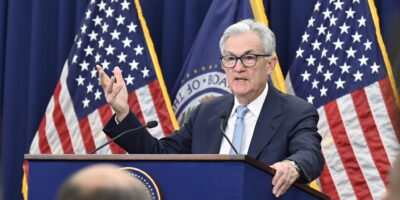Is gift exchange necessarily kinder, gentler?
In a recent Alt-M post, George Selgin calls attention to a post at The Atlantic discussing David Graeber’s gift exchange hypothesis. For those of you unfamiliar with Graeber’s book, Debt: The First 5,000 Years, the basic idea of the gift exchange hypothesis is as follows. Prior to monetary exchange economies, many societies relied on gift exchange. Under gift exchange, you give what you produce to those in your community needing it today; and, since you are a member in the community, you will receive gifts when others produce.
The Atlantic article states the matter as follows:
If you were a baker who needed meat, you didn’t offer your bagels for the butcher’s steaks. Instead, you got your wife to hint to the butcher’s wife that you two were low on iron, and she’d say something like “Oh really? Have a hamburger, we’ve got plenty!” Down the line, the butcher might want a birthday cake, or help moving to a new apartment, and you’d help him out.
On paper, this sounds a bit like delayed barter, but it bears some significant differences. For one thing, it’s much more efficient than Smith’s idea of a barter system, since it doesn’t depend on each person simultaneously having what the other wants. It’s also not tit for tat: No one ever assigns a specific value to the meat or cake or house-building labor, meaning debts can’t be transferred.
And, in a gift economy, exchange isn’t impersonal. If you’re trading with someone you care about, you’ll “inevitably also care about her enough to take her individual needs, desires, and situation into account,” argues Graeber. “Even if you do swap one thing for another, you are likely to frame the matter as a gift.”
Unlike monetary exchange, gift exchange does not permit the precise articulation of debts. As such, Graeber argues, humans did not exhibit the quid-pro-quo mentality under gift exchange that they now exhibit under monetary exchange. The take away is that gift exchange is a kinder, gentler, more caring type of exchange that should be preferred to the monetary exchange taking place today.
It is nice to think that, in the absence of monetary exchange, everyone would be more others-regarding; that we would all get along doing unto each other as we’d have them do unto us without the expectation of reciprocity; that the personal interactions of gift exchange is fundamentally better for those involved than impersonal interactions of monetary exchange. But that isn’t so obvious. Personal interactions can be pretty frustrating. Husbands cheat on their wives (and visa versa). Parents lie to their children. Children take advantage of their parents. Neighbors borrow snow shovels without asking, break them, and don’t replace them. (Sorry. I’m still a little bitter about that one.) People do each other wrong. Not always. And not always to the full extent possible. But enough to matter. Why should we think personal production and distribution interactions would be any different?
The fact is, we cannot avoid dealing with the scarcity problem. Resources are finite. People want to employ those resources in different ways. Some how, some way rationing will take place. We must decide who gets what and how resources are employed. There will be winners and losers. Some people will feel that the resulting order under gift exchange is unfair in much the same way that some people feel the resulting order under monetary exchange is unfair.
Graeber doesn’t deny that we must deal with the scarcity problem. Instead, he suggests that our wants were transformed, for the worse, by monetary exchange. We used to want for others as much as we want for ourselves. We used to take our trading partners’ needs, desires, and situations into account. Now, he suggests, we only care about ourselves. To the extent that we do care about others, it is as a means to our own satisfaction.
Neither Graeber nor I were present in pre-historical times, so it is impossible for us to know if individuals have been fundamentally transformed—or to what extent. However, it is hard for me to imagine that the problems observed in personal interactions today did not exist in the pre-historic past. As such, it isn’t obvious that gift exchange is a kinder, gentler, more caring type of exchange. Moreover, it was almost certainly more difficult to avoid those undesirable personal interactions in the past. Your husband is abusive? Too bad. He’s big and strong. The community needs him to build shelters; to hunt or plow the fields; to fend off would-be rapists and murderers. And you need him too! The consequences of exiting are huge. Today, as long as you are willing to produce for others, you can rely on a largely impartial market for home, food, and security. Those interacting in markets are far less concerned with your race, religion, sexual orientation, and other unique features that make you, well, you. They are primarily interested in whether you are willing to provide them with something they value more in exchange for something they value less. You don’t have to hint to the butcher’s wife in hopes that she will empathize and help you out. Just show up with cash!
Unlike Graeber, I would argue that access to impersonal monetary exchange (1) constrains the power that one might wield over others in personal relationships and (2) enables our personal relationships to be based more on want than necessity. That seems pretty kind, gentle, and caring to me.










